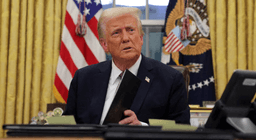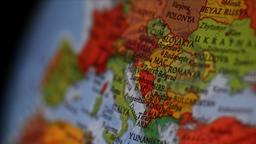When I was in Kabul years ago, I was positively surprised to see a branch of the Agha Khan Foundation working on building a cellphone network. Last week, the foundation established the Global Centre for Pluralism in Ottawa. Its objective is to create a global platform for comparative analysis, learning and dialogue on the importance of diversity, both in Canada and around the world. I see this as a very timely endeavor - and very important for the Middle East. Anyone looking for a way to integrate the Middle East into the global economy first needs to focus on how to instill an appreciation of pluralism there.
But following the adventures of Donald the Trump this week, I caught myself thinking that maybe the West needs a refresher on this point too. With his half-baked proposals, the president needs a lesson in Middle Eastern history. The Middle East needs more pluralism and fewer trenches, but Trump’s visit sent just the opposite signal: Less pluralism, more trenches. Despite the focus on Israeli-Palestinian peace, this could be a big problem.
Compare President Trump’s first visit to the Middle East with that of President Obama in 2009. Obama first came to Ankara, then flew to Cairo. His speech there was remarkable. “We will extend a hand if you are willing to unclench your fist,” is the most memorable line from the speech. He promised us a new Middle East with fewer trenches, but American promises were half-baked at that time too. The last two decades have been an uninterrupted lesson in the limits of American power to shape events in this part of the world. Obama was no exception. Now President Trump came to Riyadh and put forward a completely different vision for the Middle East. His vision is such that I hope President Trump will be at least as ineffectual as his immediate predecessors in delivering on his promises.
Trump seemed to reinforce the sectarian divide in the Middle East. His proposal is not about an Arab NATO or an Islamic NATO, but rather a Sunni NATO, or a Sunni security alliance of some sort. The Middle East needs less, not more sectarianism, and yet the American president embarks on his first regional tour with a totally sectarian message.
I am not proposing that we forget the significance of the sectarian divide in our region. We in Turkey are well aware that geography is destiny. Yet we also know that this is the age of integrating Muslims into the global system. To do this, we need to go beyond sectarianism, and that can only be done by understanding the value of diversity in our region. Our forefathers in Baghdad, Damascus, Cairo and most of all in Istanbul knew that. That is how they established great empires.
And that’s where Turkey is important as a source of inspiration in this century. Turkey is not a country the Shia of our region look up to. That’s Iran’s turf. Turkey is not also a country the Sunnis look up to. Egypt can take a leading role there. Can Saudi Arabia have a stake in this race? I do not think so. What Turkey can offer to the Muslim world is a pluralistic life under the umbrella of secularism. The future of this region lies in more secularism, more pluralism and fewer trenches. Secularism is all about valuing diversity and embracing pluralism. That is what President Erdoğan meant when he told a Qatari newspaper that there is no problem with secularism and Islam living side by side.
Half-baked ideas are always dangerous. We saw problems created by half-baked Obama policies in Libya and Syria. They are now imminent dangers to the Middle East, and this new half-baked idea of a SunniNATO could also be dangerous.
The Global Centre for Pluralism (@GlobalPluralism) needs to take a closer look at the Middle East.
This commentary was published in Hürriyet Daily News on 27.05.2017





